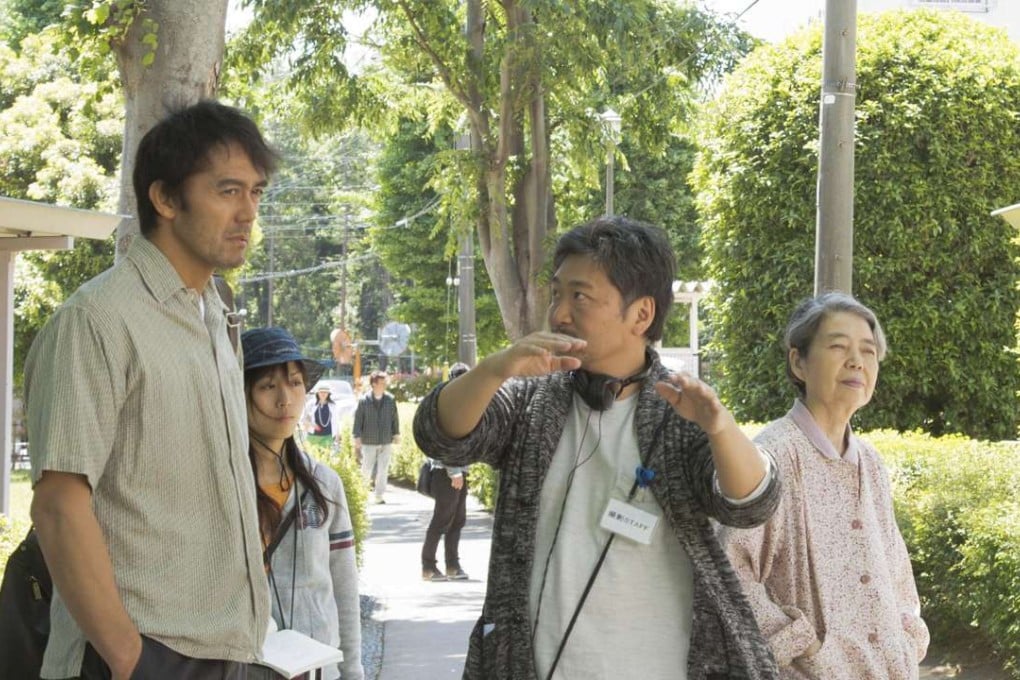How Japanese director Hirokazu Koreeda cultivates actors’ hidden potential
Former Japanese heartthrob Hiroshi Abe’s performance as a lonely has-been in After the Storm is the latest example of the filmmaker’s ability to dig deep into his actors’ psyches to draw intimate performances

Having made his name with films revolving around shifting relationships within families – both real and surrogate ones, with most of them recovering from the departure or death of one of their own – Japanese writer-director Hirokazu Koreeda has inevitably been crowned as a modern-day heir to, say, Yasujiro Ozu or Mikio Naruse. But there’s more to Koreeda than merely the typical authoritarian auteur at work.
Unlike some of his more powerful studio-backed forebears, Koreeda – who began his career in documentaries and independent productions – has proved to be more enthusiastic about generating a rapport with his cast and crew. A result of this is his canny eye for spotting and then unearthing the hidden potential within both new faces and established players.

There’s also Yuya Yagira, who famously beat the likes of Tony Leung Chiu-wai (2046), Choi Min-sik (Oldboy) and Tom Hanks (The Ladykillers) to become, at the age of 14, the youngest winner of the best actor prize at Cannes in 2004 with Nobody Knows .
Koreeda has proved to be just as deft at jolting old-timers from their usual routines. Itsuji Itao, who made his name in comedies and raucous variety shows, surprised many with his turn as a quiet loner in Air Doll; with Like Father, Like Son , Masaharu Fukuyama traded in his full-time A-list heartthrob persona to play a father struggling to engage with a boy who’s not his own.
